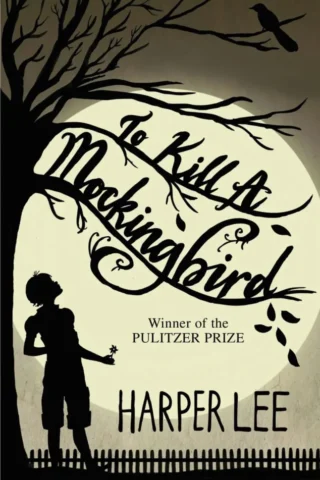To Kill a Mockingbird

“To Kill a Mockingbird” by Harper Lee is, without a doubt, one of the best classic novels out there. It’s a book that touches the heart and makes you think deeply about justice, racism, and humanity. Set in the sleepy town of Maycomb, Alabama, during the Great Depression, the story is narrated by a young girl named Scout Finch, whose innocence and curiosity bring a unique perspective to serious issues.
What makes this book so special is how it combines a coming-of-age story with powerful social commentary. Through Scout’s eyes, we see the world in a pure, unfiltered way. Her father, Atticus Finch, is a lawyer and a moral hero who teaches Scout and her brother Jem important life lessons. One of the most memorable quotes from Atticus is, “You never really understand a person until you consider things from his point of view… until you climb into his skin and walk around in it.” This quote encapsulates the novel’s core message about empathy and understanding.
The central plot revolves around Atticus defending a black man, Tom Robinson, who is falsely accused of raping a white woman. Despite knowing that the odds are against them, Atticus stands firm in his belief in justice and equality. His unwavering integrity and dedication to doing what’s right, even when it’s unpopular, make him an inspiring character. Another powerful quote from Atticus is, “The one thing that doesn’t abide by majority rule is a person’s conscience.”
The book also brilliantly captures the innocence of childhood. Scout, Jem, and their friend Dill are curious and adventurous, trying to make sense of the complicated world of adults. Their fascination with their reclusive neighbor, Boo Radley, adds an element of mystery and adventure to the story. Through their experiences, they learn about kindness, courage, and the harsh realities of prejudice.
One of the novel’s most poignant moments is when Scout finally meets Boo Radley and realizes he’s not the monster she imagined but a kind, protective figure. Reflecting on Boo’s actions, Scout says, “Atticus, he was real nice.” To which Atticus replies, “Most people are, Scout, when you finally see them.” This line underscores the theme that people are often misunderstood and that true understanding comes from seeing things from their perspective.
“To Kill a Mockingbird” is more than just a book; it’s a profound exploration of human nature and morality. It challenges readers to confront their own prejudices and to strive for justice and compassion. It’s a story that stays with you, reminding you of the importance of empathy and standing up for what’s right.
In conclusion, “To Kill a Mockingbird” is a timeless classic that remains relevant today. Its compelling characters, moving storyline, and deep moral lessons make it a must-read for anyone who values justice, empathy, and understanding.


